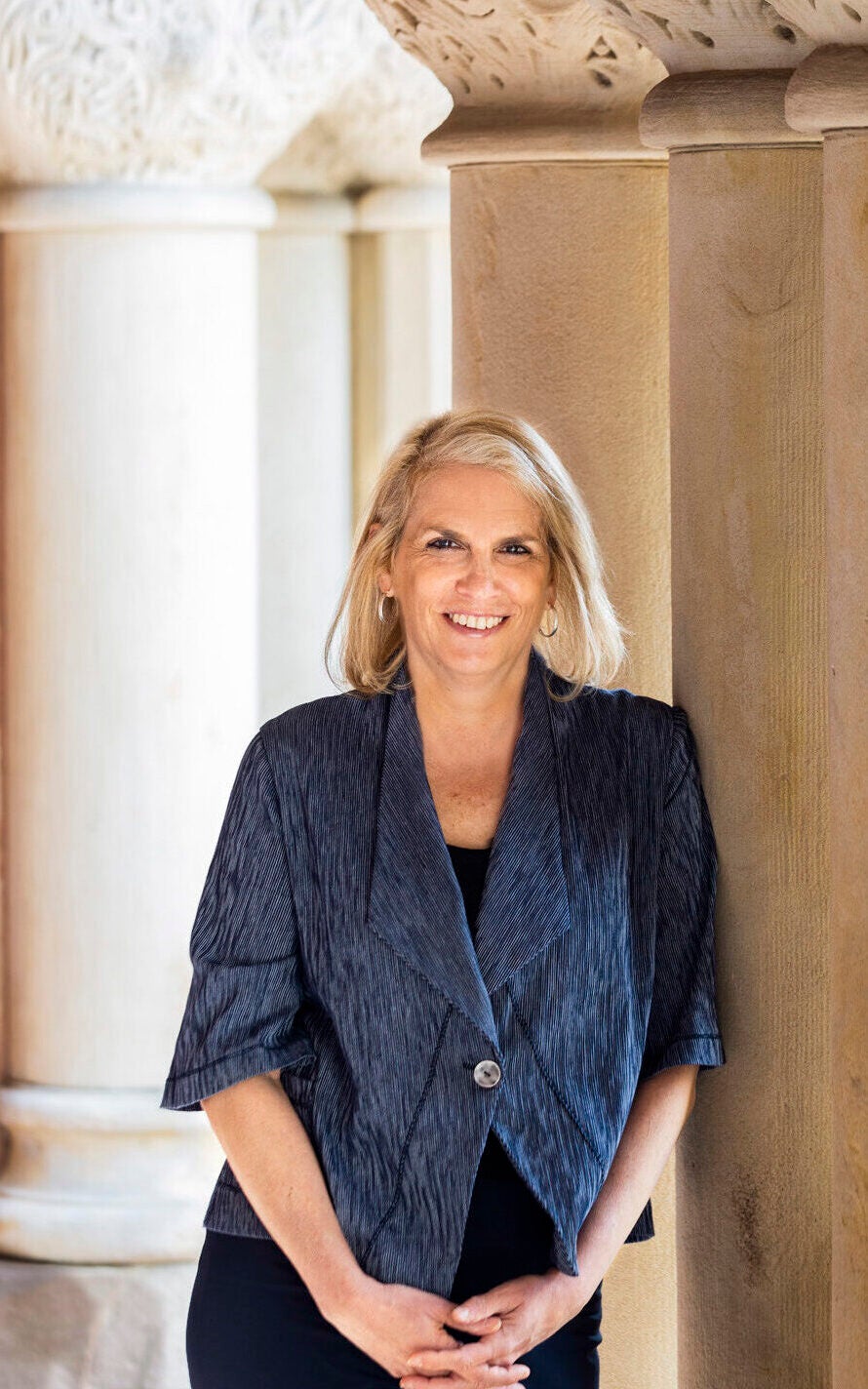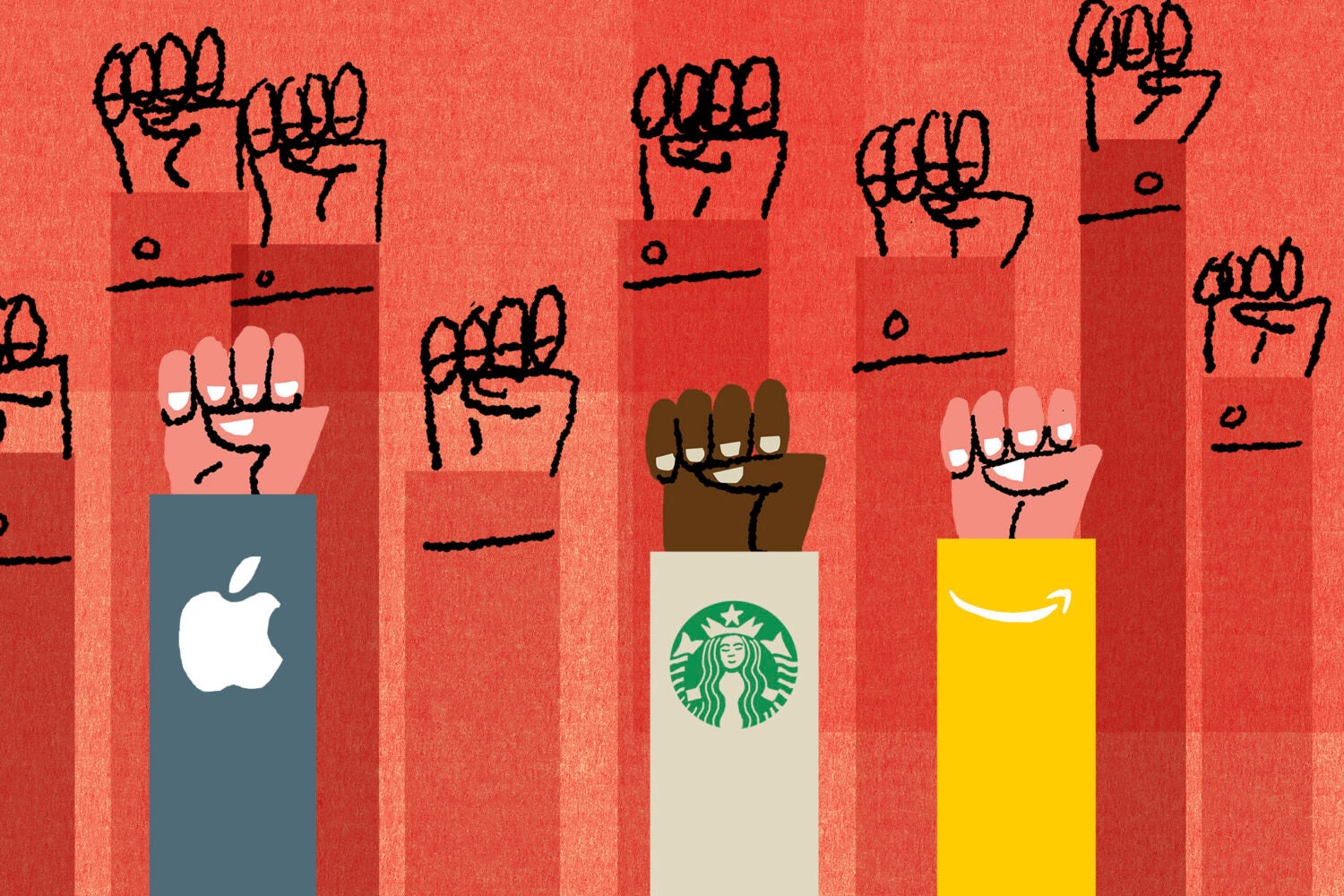American support for labor unions is on the rise. An August 2021 Gallup poll found that 68% of Americans approve of labor unions, marking the highest rating on this topic the firm has measured since 1965. Workers have voted to unionize at dozens of Starbucks locations as well as one of Amazon’s Staten Island warehouses. Meanwhile, workers across the country have begun to demand changes to their working environments in the wake of the COVID-19 pandemic, amid what some have called the Great Resignation.

Sharon Block, executive director of Harvard Law School’s Labor and Worklife Program, spoke with the Bulletin about what these changes could mean for the future of the labor movement. After leaving the school for more than a year to serve as acting administrator of the White House Office of Information and Regulatory Affairs, Block has returned as a professor of practice in addition to resuming her directorship of the program. In a wide-ranging interview, she argues that unions are many people’s most immediate experience of democracy, and weakness in the labor movement may in turn weaken political democratic institutions.
Do you see recent unionizing efforts at major companies like Amazon, Starbucks, and Apple as the start of a significant change for the labor movement?
I am certainly hopeful that this is somewhat of a turning point. Companies like Amazon, Starbucks, and Apple have such a significant public presence that when workers in other companies see successful organizing campaigns there, they are inspired. One of the most exciting things about Amazon and Starbucks is that they are workplaces that people said were just unorganizable — and workers have proved that wrong.
Look at Starbucks. Three in Buffalo had union elections. And at last count, there were about 200 organizing campaigns going on. In more than 150 Starbucks stores, the workers have successfully unionized, and they’ve only lost 23 elections. It’s like a wave. You can watch the Starbucks wave going across the country. So, that’s a very current example of how these things can build.
“One of the most exciting things about Amazon and Starbucks is that they are workplaces that people said were just unorganizable — and workers have proved that wrong.”
What factors do you think are driving these unionization efforts?
There is an emotional component to it, but I think it’s more than that. We have a tighter labor market than we’ve had in a very long time, and I think that gives workers more confidence in taking the risk. And, to be clear, in this country, under the National Labor Relations Act — a law that’s very weak — it is a risk for workers to put themselves out there and be an active participant in an organizing campaign. In a tight labor market, maybe that’s not quite as scary.
There’s also been data coming out recently from the Pew polls and the Gallup surveys that indicate more support among the general public for unions now than there’s been in decades. Younger workers are even more supportive of unions than the general public. Some of these places where we’re seeing these organizing campaigns also have relatively young workforces. I think there are a lot of elements that are hopefully making this a particularly auspicious time for a wave of organizing.
What would you tell CEOs who oppose unionization?
It’s always seemed ironic to me when companies and management see unionizing as a threat or a hostile act, because, especially in a tight labor market, you’ve got employees who — if they didn’t care about the company, and they didn’t like their labor conditions — could go somewhere else. These workers are saying: “I don’t want to go somewhere else. I want to stay at this company and I want to make it better.” Enlightened management can take a step back and recognize that it actually is a commitment to the company to want to unionize. It’s wanting to be part of solving problems.
What I would want to tell them is just take a breath and try to see it as an opportunity. In most workplaces, nobody knows the core of the business better than the people who are actually doing the work. A barista knows what it takes to get the customers the coffee that they want, in the most expeditious way possible, because that’s a barista’s job. Seeing unionization as a way to hear from those people who know and care about your business can really shift that perspective.
You and Professor Benjamin Sachs created a labor-related project at Harvard Law School called Clean Slate for Worker Power. What do you hope to achieve through it?
It’s an ongoing project, and it’s one reason why I’m so excited to be back here at Harvard Law School. In January of 2020, we put out recommendations providing a vision for comprehensive labor law reform. We followed that up in the beginning of the pandemic with recommendations for reforms that were particularly adapted to workers’ being able to have more say in how they can be protected during the pandemic. We helped groups that are working at the state and local levels on projects that are empowering for workers. Now that I’m back, we’re looking at what the next stage of Clean Slate will be.
One piece that has been consistent through the whole project is focusing on the importance of labor law in achieving racial justice. We’re hoping by the end of the year to have even more recommendations about how labor law should adapt to advance racial justice. When the National Labor Relations Act was enacted in the 1930s, Congress was thinking about big factories for the most part, and they enacted a labor law that would fit that kind of workplace. If you look at where people work — especially the low-wage sectors in which marginalized populations, including people of color, disproportionately work — the labor law is particularly ill equipped to empower workers. It becomes important to ensure that you have a labor law that works well and will empower workers in all sectors, but particularly in sectors where the most vulnerable workers are.
How do you think the pandemic has impacted workers’ rights and protections?
“My hope is that workers bank power for when things aren’t as good and build unions to protect themselves.”
We will learn a lot more now as some of the worst parts of the pandemic start to subside. But one of the things that seems obvious is more people are working from home. What does that mean for organizing? What does that mean for the way that management and labor interact?
Another thing that I’m very interested in is looking at workers who at the beginning of the pandemic were deemed essential and got a lot of attention and support. It feels like a lot of people have forgotten about those workers, who are as essential today as they were at the beginning of the pandemic. We want to look at how the law can adapt to ensure that they never feel inessential again.
It’s just a fascinating time: the intersection between a tight labor market and increasing organizing, all of these shifts that happened as a result of the pandemic and trying to figure out which of them will be continuing features of the experience of work in this country and which will fall away.
Do you worry about certain unions getting too powerful?
No, I don’t, because unions are democratic institutions. There are checks and balances on unions to ensure that they’re serving the interests of their members. And if they’re not, then the members have the ability to say they no longer want representation or that they want different leadership. And the law actually protects the union members’ right to have a say in who leads the union and whether contracts are ratified or not. It’s very different from corporations, which generally are not democratic institutions. Of all the things that I worry about, unions being too powerful is not on my list.
What is the state of the labor movement today and what might it look like in the future? How do you situate this moment?
We don’t really know how big this increase in organizing is going to be, but if you take even a half-step back, it’s a very challenging time for the labor movement. Union density — the percentage of workers who are represented by a union in the workforce overall, and particularly in the private sector — is extremely low and has been declining for years. At the same time, as I mentioned, very reputable public opinion surveys are telling us that record numbers of people support unions, think highly of unions, want to be in a union. And so, we have this gulf between people who do want to be in a union and people who have a union. That delta tells me that we have a profound problem in the law that is supposed to enable workers to make the desire to have a union into a reality.
The labor movement is an incredibly important institution in this country in terms of thinking about the crisis of democracy that we have. For many people — and there are still millions of people in unions — it’s the most immediate experience of democracy; it’s very affirming of democratic principles to be in a union. In fact, some of the weakening of our political democratic institutions may be tied to the weakness in our labor movement. I think everybody should be concerned about the viability, the health, the resiliency of the American labor movement. Part of protecting our democracy is protecting our labor movement.
What do you see as the biggest obstacle for the labor movement today?
The weakness of the law. The reality is that it’s really hard to unionize in this country. And it is really hard for workers — even those who have unions — to build sufficient power to countervail corporate power. And it takes a lot of courage to put yourself on the line because it is too easy for employers to get away with threatening, coercing, or firing pro-union workers. There are a lot of good employers who want to do the right thing. But the reality is that the penalties under the National Labor Relations Act are so weak that they don’t create enough of a disincentive for employers who aren’t committed to doing the right thing.
But with a tight labor market and as workers feel like they’ve got more security, my hope is that they bank that power for the days when things aren’t as good and build unions to protect themselves for the future. We’ll see if that gives people that added confidence to do something that, sadly, under the law, is a risky proposition.
